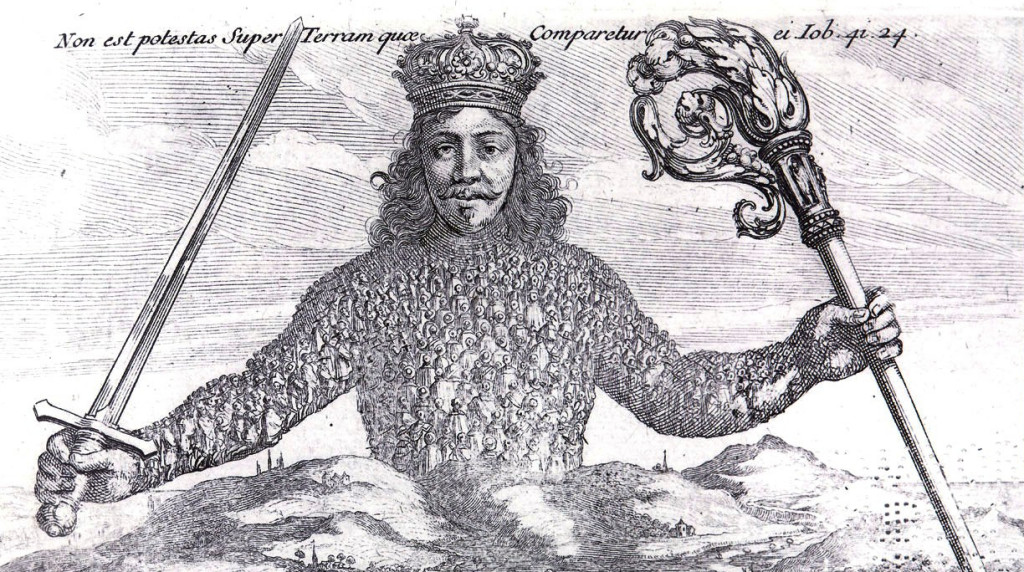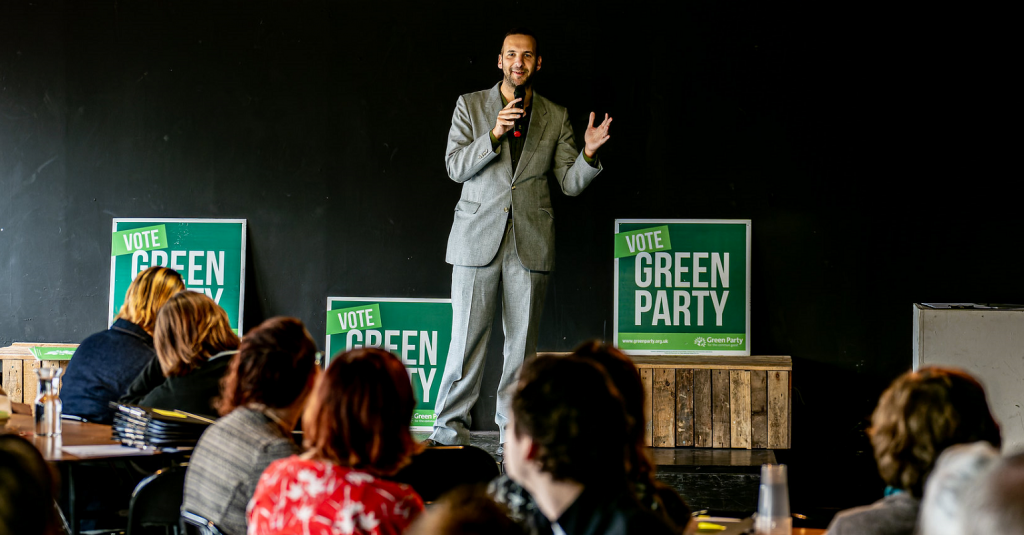Trump, May, and Autocratic Libertarianism

At first glance the fact that Donald Trump and Theresa May’s neo-Conservative agenda mixes a libertarian ideology with a strong authoritarian streak seems contradictory. In the United States we see Trump using an autocratic executive order to mandate that two rules for business must be repealed for each new one enacted in Congress. In Britain a similar mantra of a ‘bonfire of red tape’ is accompanied by the attempt to use the Royal Prerogative to force through Brexit decisions. But autocracy was built into Libertarianism when it first appeared centuries ago!
It is not just in religious texts that people die and get buried only to be resurrected and live a far more celebrated second life; or at least their works do. It happened to the composer J.S. Bach, whose music disappeared for over a century before it was resurrected by Felix Mendelssohn in the mid Nineteenth Century. It also happened to a man who died just before Bach was born, the seventeenth century political philosopher Thomas Hobbes.
Ironically for one of the founders of liberal and libertarian thinking, (along with John Locke) a primary aim of Hobbes was a defence of sovereign power and autocratic government. Hobbes works include Leviathan, published in 1651 in which he developed his Social Contract Theory.
His efforts were largely aimed at opposing the radical politics which emerged during the English Civil War of the previous decade (partly as a result of the radical Leveller group) and the theories of the High Republicans during the English Commonwealth of the early 1650s (1).
Strangely, although Hobbes ideas were applicable to a Royalist settlement as well as the Council of State of their bitter opponent Parliamentarian Oliver Cromwell, both sides found his views unpalatable. So, just like the work of the composer Bach, Hobbes theories fell into obscurity for over a century to be revived during the debate over American Independence in the 1770s.
So what lay behind Hobbes insistence on an absolute monarch? It comes from Hobbes concept of society which viewed people atomistically, in perpetual motion trying to gain economic advantage and influence over each other. From this a natural structure to society emerges with individuals all seeking their own best interests.
But if society is of this nature, what stops it falling apart in some kind of anarchic fight for ultimate power? Why, none other than a universally accepted absolute sovereign charged with passing and enforcing laws to ensure the continued health of the competitive system.
To keep the sovereign above the throng he or she would have the power to appoint their successor (what better than the eldest son!). Importantly, the Sovereign was not necessarily an individual in the Hobbes system, but could also be an elite ruling group or even, surprisingly, a democratically chosen chamber. What concerned Hobbes was not so much the source of the power but the absolute manner in which it was wielded.
Hobbes claimed that the legitimacy for his theory came from the freedoms which man possessed in the ‘state of nature’. But as C. B. MacPherson showed in his book Possessive Individualism, this was a fallacy.
What Hobbes did was to take the contemporary mid-seventeenth century English economic structure of small traders and freelancers and hypothesize how they would behave if laws were removed. Crucially, his version of liberty rested on the fact that a person is free to the extent that he/she is not constrained by laws; the Sovereign is there merely for the stability of society and the health of a free market.
For Hobbes, so-called ‘freedom by non-interference’ was key and as freedom is maximised when the number and extent of laws are minimised, it is actually irrelevant whether the laws are passed by an elected chamber or an absolute monarch. The idea of liberty through non-interference, also expounded by John Locke, was later developed by Jeremy Bentham and became the prevalent view which still dominates today.
But it turns out that this idea of liberty is not nearly strong enough and not only must there be non-interference, but there must be no possibility of interference (so-called non-domination). Furthermore, the state itself must also be free, prevented from being subverted by individual or sectarian interests. In this view a sovereign must be restrained from creating arbitrary laws to their own advantage or blocking new laws to extend liberty in some facet of society.
Thus to a modern day British Republican (and more widely to any real Democrat as a believer of rule by the people) the mere existence of the Royal Prerogative along with Royal Assent (though not used since 1707) and Queen’s Consent which can be used to prevent debate in the House of Commons is unacceptable. As Philip Pettit in his book Republicanism writes:
Liberty as non-domination – republican liberty – had not only been lost to political thinkers and activists; it had even become invisible to the historians of political thought.
As activists we need to recover this idea of republican liberty. Remember that the theory calls for the wielding of absolute power (or as close as we can get in the form of Prerogative or Executive Order). Although Hobbes can be seen as the progenitor of the concept, modern Libertarians are actually critical of Trump and May, viewing the size of the Government they propose as being far too large. Nevertheless the autocratic Libertarian elements of both leaders must be opposed for a compassionate and fair society with effective individual rights to survive. The recent debacle suffered by Theresa may in this General Election greatly increases the chances of a successful outcome in the near future. But the ideology is as old as the hills and we can be certain that sooner or later it will flourish again.
Notes
- Just to be clear, whenever I use the term Republican I am referring to a political theory of freedom with no connotation to the US GOP.




Leave a Reply